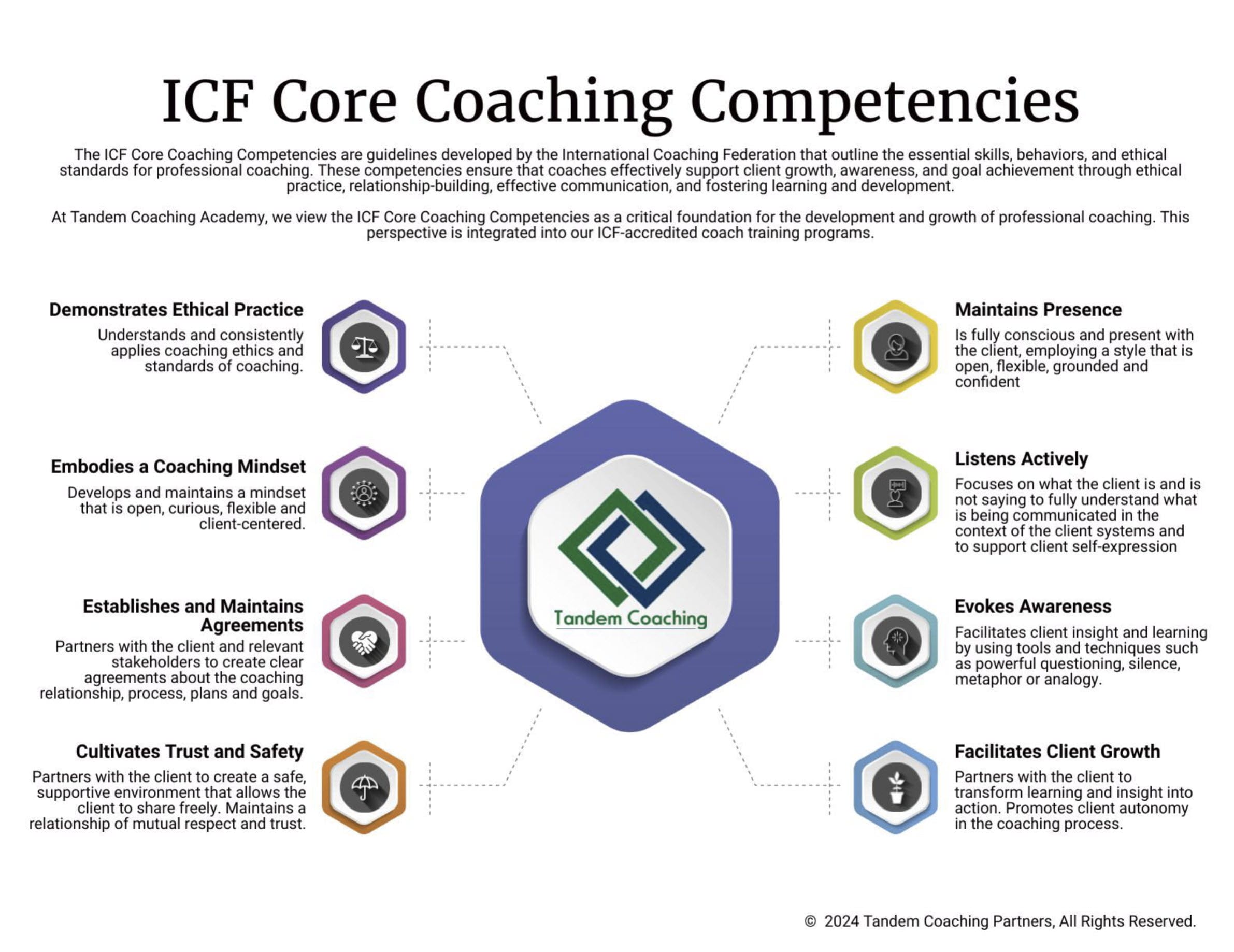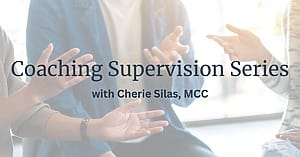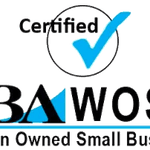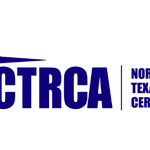During our ACC cohort Q&A last month, one of our students unmuted with a question that stopped the entire class. “Cherie,” Marcus said, his voice carrying that mix of confidence and uncertainty I recognize so well, “I’ve been coaching informally for two years. My clients love working with me. But I keep wondering – am I just wasting money on this certification? What if I’m already good enough?”
TL;DR: Life coaching certification isn’t legally required, but 83% of people who’ve worked with a coach say certification is “important” or “very important”. ICF certification has become the gold standard, offering credibility, systematic training, and access to higher-paying opportunities. While non-ICF programs exist at lower costs, ICF accreditation provides the strongest ROI through client trust, corporate contracts, and professional recognition. The investment ranges from $995 to $14,000+, but certified coaches typically earn 20-30% more than uncertified ones.
The Zoom room went quiet. Twenty-three other students leaned in, because Marcus had voiced what many were thinking. It’s a question I hear in different forms every week – from potential students during consultations, from coaches at ICF chapter meetings, even from seasoned professionals considering their next credential level.
I’m Cherie Silas, and I’ve walked this path myself – from uncertified coach to Master Certified Coach (MCC), the highest level of ICF certification. Today, I want to share the unvarnished truth about life coaching certification: what it really means, why it matters (and when it doesn’t), and how to choose the path that serves both you and your future clients.
The Certification Conversation No One’s Having
Let me start with something that might surprise you: You don’t need certification to be a great coach.
I’ve met uncertified coaches who transform lives daily. I’ve also met certified coaches who couldn’t coach their way out of a paper bag. A certificate doesn’t make you a coach any more than a guitar makes you a musician.
But here’s what I’ve discovered after training hundreds of coaches and building my own practice: certification isn’t about the paper. It’s about the journey. It’s about who you become in the process. And yes, it’s about opening doors that might otherwise remain closed.
The Market Has Spoken
23% of coaches say uncertified coaches are the biggest obstacle in the life coaching business 50+ Useful Life Coaching Statistics & Huge Trends (2025). This isn’t about elitism – it’s about market perception. When there are 109,200 certified coaches worldwide competing with an unknown number of uncertified coaches Passive Secrets, Paperbell, clients need a way to differentiate.
Think about it from your potential client’s perspective. They’re about to invest thousands of dollars and dozens of hours with someone they’ve just met. They’re going to share their deepest fears, biggest dreams, most vulnerable moments. Wouldn’t you want some assurance that this person knows what they’re doing?
What Certification Really Gives You
After earning my ACC, then PCC, and finally MCC, here’s what I know certification provides:
A systematic approach to developing coaching skills. You don’t just learn techniques – you embody a way of being with clients. The ICF core competencies aren’t a checklist; they’re a framework for powerful coaching.
Credibility that opens doors. Corporate clients often require ICF certification. Period. That contract Rachel lost? It’s not uncommon. Many organizations have policies requiring certified coaches.
A community of professionals. Coaching can be isolating. Certification programs connect you with peers who understand the unique challenges of this work. At Tandem, we’ve seen lifelong partnerships form in our cohorts.
Accountability to ethical standards. The ICF Code of Ethics isn’t just rules – it’s a framework for navigating the complex situations that arise in coaching. When a client shares suicidal thoughts, when a sponsor and client have conflicting goals, when you’re attracted to a client – ethics training matters.
Confidence in your craft. This might be the most important. When you’ve been rigorously trained, practiced under supervision, and passed comprehensive assessments, you show up differently. Your confidence isn’t arrogance – it’s earned competence.
The Certification Landscape: Making Sense of Your Options
Walking into the world of coaching certifications can feel like entering a foreign country without a map. With so many coach training and certification programs available today The 10 Best Life Coach Certification Programs [2025] | Life Coach Magazine, how do you choose? Let me break it down.
ICF Accreditation: The Gold Standard
The International Coaching Federation (ICF) isn’t the only certifying body, but it’s the most recognized globally. Organizations like the ICF operate to accredit individual coach certification programs Life Coach MagazineLifecoachpath, ensuring they meet rigorous standards.
Here’s what makes ICF different:
Global recognition. When I travel internationally to train coaches, ICF certification is understood everywhere. It’s the MBA of coaching credentials.
Rigorous standards. ICF-accredited programs must deliver specific competencies, require extensive practice hours, and include mentor coaching. You can’t just watch videos and get certified.
Three levels of certification:
- ACC (Associate Certified Coach): 60+ training hours, 100+ coaching hours
- PCC (Professional Certified Coach): 125+ training hours, 500+ coaching hours
- MCC (Master Certified Coach): 200+ training hours, 2,500+ coaching hours
Ongoing education requirements. To maintain your credential, you must continue learning. This keeps coaches current and engaged in their development.
Non-ICF Programs: The Alternative Path
Not every quality program carries ICF accreditation. You will find many excellent programs with and without an ICF accreditation The 10 Best Life Coach Certification Programs [2025] | Life Coach Magazine. Some reasons coaches choose non-ICF programs:
Lower cost. Non-ICF programs can cost as little as $995 compared to ICF programs ranging from $3,500 to $14,000+.
Faster completion. Some programs promise certification in days or weeks rather than months.
Specific methodologies. Programs teaching proprietary systems (like energy coaching or specific therapeutic approaches) may not seek ICF accreditation.
Less rigorous requirements. No mandatory mentor coaching or practice hours.
But here’s what I tell coaches considering this path: you often get what you pay for. That three-day certification might give you a certificate, but does it give you competence? Can you confidently handle a client in crisis? Do you understand the nuances of the coaching agreement? Have you practiced enough to find your authentic coaching voice?
The Hidden Costs of No Certification
Some coaches skip certification entirely. You are not legally required to have a life coach certification to operate as a “life coach” Life Coach Certification vs. Coaching Uncertified – IGC COACHING SCHOOL. It’s true – coaching is an unregulated industry. But consider the hidden costs:
Lost opportunities. Many corporate contracts, coaching platforms, and referral networks require certification.
Lower rates. Uncertified coaches typically charge 20-30% less than certified coaches for similar services.
Longer path to credibility. Without third-party validation, you must work harder to prove your competence.
Ethical blind spots. Without formal ethics training, you might inadvertently harm clients or yourself.
Professional isolation. Certification programs provide community and ongoing support that independent coaches miss.
Why ICF Certification Is Worth the Investment
I’ll be direct: I believe ICF certification is the wisest investment for serious coaches. Not because I offer ICF-accredited training – but because I offer ICF training because I believe in its value.
The Market Demands It
The data is clear: 83% of people who have worked with a coach said it was either “important” or “very important” that their coach had a coaching certification or credential The Coaching Industry Market Size in 2025. Even those who’ve never worked with a coach share this view – 76% had the same response The Coaching Industry Market Size in 2025.
This isn’t just preference – it’s market reality. When potential clients compare coaches, certification often becomes the deciding factor. It’s shorthand for “this person is serious about their profession.”
The ROI Is Clear
Yes, ICF certification requires investment. Our ACC program costs $3,500 – significantly less than many competitors but still a meaningful investment. But consider the return:
Higher rates. ICF-certified coaches command premium fees. That 20-30% rate increase means you recoup your investment quickly.
Corporate access. Many organizations only hire ICF-certified coaches. One corporate contract can pay for your entire certification.
Referral networks. ICF chapters and directories provide steady referral streams.
Confidence to charge your worth. When you know you’ve met rigorous standards, you stop underselling yourself.
The Learning Transforms You
Here’s what no one tells you about ICF certification: it’s not just about learning to coach others. It’s about your own transformation.
In our programs, you’ll receive coaching, provide coaching, and observe coaching. You’ll confront your triggers, biases, and limitations. You’ll discover your authentic coaching presence. You’ll learn not just what to do, but who to be.
One of our recent graduates told me, “I came to become a better coach. I left as a better human.”
That’s the real value of quality certification. It’s not just professional development – it’s personal evolution.
Choosing Your Certification Path
So how do you choose among the many options? Here’s my framework for making this crucial decision:
Start With Your Why
What’s driving you toward certification? Be honest:
- Building credibility with corporate clients?
- Structuring your natural coaching abilities?
- Joining a professional community?
- Personal growth and development?
- Meeting client expectations?
Your why determines your path. If you need corporate credibility, ICF is non-negotiable. If you want quick validation for existing skills, a shorter program might suffice.
Consider Your Learning Style
How do you learn best?
- Self-paced online? Many programs offer flexibility for working professionals
- Live interaction? Look for programs with significant real-time components
- Intensive immersion? Some prefer condensed, focused learning
- Extended journey? Others need time to integrate learning
At Tandem, we offer fully online programs with live sessions because we’ve found this blend serves working professionals best.
Evaluate the Investment
Look beyond the sticker price:
- What’s included? (Some programs charge extra for mentor coaching)
- What’s the time commitment?
- What support is provided post-certification?
- What’s the true ROI based on your goals?
Remember: the most expensive program isn’t necessarily the best, and the cheapest rarely provides lasting value.
Research the Reputation
Due diligence matters:
- Read reviews from recent graduates
- Check the program’s ICF accreditation status
- Investigate the instructors’ credentials
- Ask about pass rates for ICF exams
- Request to speak with alumni
When we share that our founders are both MCCs and our pass rates exceed industry averages, it’s not bragging – it’s transparency you deserve.
The Certification Journey: What to Really Expect
Let me paint a realistic picture of the certification journey, because Instagram doesn’t show the whole truth:
The Messy Beginning
Your first practice coaching sessions will be awkward. You’ll forget the powerful questions you planned. You’ll accidentally give advice. You’ll wonder if you’re cut out for this.
This is normal. Every master coach started here.
In our ACC program, we normalize the mess. We celebrate the stumbles because they’re proof you’re stretching. As I tell my students, “If you’re not uncomfortable, you’re not growing.”
The Competency Overwhelm
The ICF core competencies can feel overwhelming initially. Ethical practice, coaching presence, active listening, powerful questioning – how do you juggle it all?
You don’t. You integrate slowly. Like learning to drive, eventually what felt impossible becomes automatic. But it takes practice, patience, and yes, some frustration.
The Mentor Coaching Mirror
Mentor coaching is where illusions shatter – in the best way. When an experienced coach observes your sessions and provides feedback, you see your blind spots clearly.
Some students find this confronting. I found it liberating. Finally, someone could show me why certain sessions felt stuck, why some clients thrived while others stalled. This feedback is gold for your development.
The Exam Anxiety
Yes, there’s an exam. The ICF credentialing exam tests your knowledge of competencies and ethics. It’s challenging but fair.
Many students stress about this exam. Here’s my advice: if you’ve done the work, attended the training, and practiced authentically, you’re ready. The exam tests what you’ve already internalized, not what you’ve memorized.
The Transformation
Somewhere in the journey – different for each person – something shifts. You stop trying to be a coach and start being one. The competencies move from your head to your bones. You trust the process, trust the client, trust yourself.
This is when coaching becomes art, not technique. This is what certification, done well, provides.
When Certification Isn’t Right (Yet)
I believe in certification, but I also believe in timing. Here’s when you might wait:
You’re Still Exploring
If you’re curious about coaching but not committed, start with:
- Working with a coach yourself
- Reading foundational books
- Attending coaching demonstrations
- Having coaching conversations with friends
Get a feel for the work before investing in certification.
You Have a Specific Niche That Doesn’t Require It
Some coaches work in niches where certification matters less:
- Internal coaching within your current organization
- Coaching within an existing professional practice
- Very specific expertise-based coaching
Even here, I’d argue certification enhances your effectiveness, but it might not be urgent.
You’re Not Ready for the Investment
If finances are truly tight, consider:
- Starting with coach-specific training workshops
- Finding programs with payment plans (we offer them)
- Building your practice first to fund certification
- Exploring scholarships or organizational funding
But don’t let fear of investment stop you. 68% of individuals who hired coaches were able to make back their investment The Ultimate List of Life Coaching Statistics in 2025, with the median ROI being 7x the investment The Ultimate List of Life Coaching Statistics in 2025.
The Truth About Certification Costs
Let’s talk real numbers, because transparency matters:
ICF Program Investments
Based on current market analysis:
- Entry Level (ACC): $3,500 – $8,000
- Advanced (PCC): $7,000 – $14,000
- Master Level (MCC): Additional $5,000 – $10,000
Plus:
- ICF application fees: $300 – $500
- Exam fees: $300 – $500
- Continuing education: $500+ annually
Non-ICF Programs
Range from $995 to $5,000, but remember:
- Often less comprehensive
- May require additional training later
- Limited recognition in professional settings
The Tandem Difference
We price our ACC program at $3,500 because we believe in accessibility without sacrificing quality. This includes:
- All training hours
- Mentor coaching (many charge extra)
- Exam preparation
- Ongoing community support
Compare this to programs charging $14,000 for similar outcomes, and you’ll understand why we’re passionate about making quality coaching education accessible.
Your Next Step
As I sit here writing this, I think about Rachel – the coach who lost that contract. She enrolled in our ACC program the following week. Six months later, she not only had her certification but had landed three corporate contracts. More importantly, she told me, “I finally feel legitimate. Not because of the certificate, but because of who I became earning it.”
That’s the real gift of certification: becoming the coach your clients deserve.
If You’re Ready to Commit
The path is clear:
- Choose ICF accreditation for maximum credibility
- Research programs that fit your learning style and budget
- Schedule a consultation with programs you’re considering
- Trust your instincts about fit
If You’re Still Uncertain
That’s okay. This decision deserves thoughtfulness:
- Download our coaching readiness assessment
- Attend a program information session
- Talk to certified and uncertified coaches
- Notice what resonates
My Invitation to You
Whether you choose ICF certification, another path, or no certification at all, I invite you to take your coaching seriously. Your clients deserve your best. You deserve to feel confident and competent. The world needs coaches who’ve done their work.
Certification isn’t just about the paper. It’s about the promise – to yourself, to your clients, to the profession. It’s about saying, “I’m willing to be transformed so I can help transform others.”
The coaching industry is projected to reach $7.31 billion by 2025 CoachRanksPassive Secrets, growing from $4.65 billion in 2022 Accurate Coaching Market Size Data for 2024 & 2025. This growth reflects genuine need. People are struggling, searching, seeking. They need coaches who are prepared, professional, and powerful in their presence.
Will you be one of them?
Making Your Decision: A Framework
Before you invest in any certification, ask yourself:
1. What doors do I want to open?
- Corporate coaching? → ICF is essential
- Life coaching practice? → ICF is strongly recommended
- Niche expertise coaching? → Certification enhances but may not be required
2. How do I learn best?
- Need structure and accountability? → Comprehensive program
- Self-directed learner? → Online self-paced options
- Learn by doing? → Programs with extensive practice
3. What’s my real budget?
- Include time, not just money
- Factor in ROI, not just cost
- Consider payment plans if needed
4. What’s my timeline?
- Building a practice slowly? → Longer programs work
- Need credibility quickly? → Intensive programs help
- Working full-time? → Flexible scheduling essential
5. Who do I want to become?
- This is the most important question
- Certification is transformation
- Choose programs that align with your values
Remember: the certificate is just paper. The journey is everything.
Frequently Asked Questions
Do I legally need certification to call myself a life coach?
No, coaching is an unregulated industry. You are not legally required to have a life coach certification to operate as a “life coach” Life Coach Certification vs. Coaching Uncertified – IGC COACHING SCHOOL. However, market demands and professional standards make certification increasingly important. Think of it like this: you don’t legally need a degree to call yourself a consultant, but try getting hired without credentials.
What's the real difference between ICF and non-ICF certification?
ICF certification requires specific training hours, mentor coaching, observed coaching sessions, and comprehensive examination. Non-ICF programs vary widely in requirements. The main differences: global recognition, standardized quality, ongoing education requirements, and access to corporate opportunities. It’s like comparing an accredited university degree to a certificate from an unaccredited school.
How long does ICF certification really take?
For ACC level: 6-9 months is typical for working professionals. This includes 60+ training hours, 100+ practice coaching hours, and 10 hours of mentor coaching over at least 3 months. You can go faster if you have more time to dedicate. Our students at Tandem typically complete in 6-7 months while maintaining their careers.
Can I make money as a coach without certification?
Yes, some coaches build successful practices without certification. However, 23% of coaches say uncertified coaches are the biggest obstacle in the life coaching business 50+ Useful Life Coaching Statistics & Huge Trends (2025). You’ll likely charge less, have fewer opportunities, and work harder to establish credibility. The question isn’t whether you can make money, but how much easier certification makes it.
Which certification level should I start with?
Start with ACC (Associate Certified Coach). It provides full ICF credibility and allows you to begin practicing professionally. You can pursue PCC later as you gain experience. Think of it as bachelor’s degree vs. master’s – start with the foundation. Only 4% of coaches ever reach MCC level, and that’s okay.
Is online certification as good as in-person?
Quality online programs are equally effective. The key is interaction level, not delivery method. Our online programs include live sessions, breakout practice, and real-time feedback. Many coach training and certification programs available today offer flexible online options The 10 Best Life Coach Certification Programs [2025] | Life Coach Magazine. Choose based on learning style and life logistics, not outdated biases about online learning.

Unlock Your Coaching Potential with Tandem!
Dive into the essence of effective coaching with our exclusive brochure, meticulously crafted to help you master the ICF Core Coaching Competencies.
"*" indicates required fields
About the Author
Cherie Silas, MCC
She has over 20 years of experience as a corporate leader and uses that background to partner with business executives and their leadership teams to identify and solve their most challenging people, process, and business problems in measurable ways.















